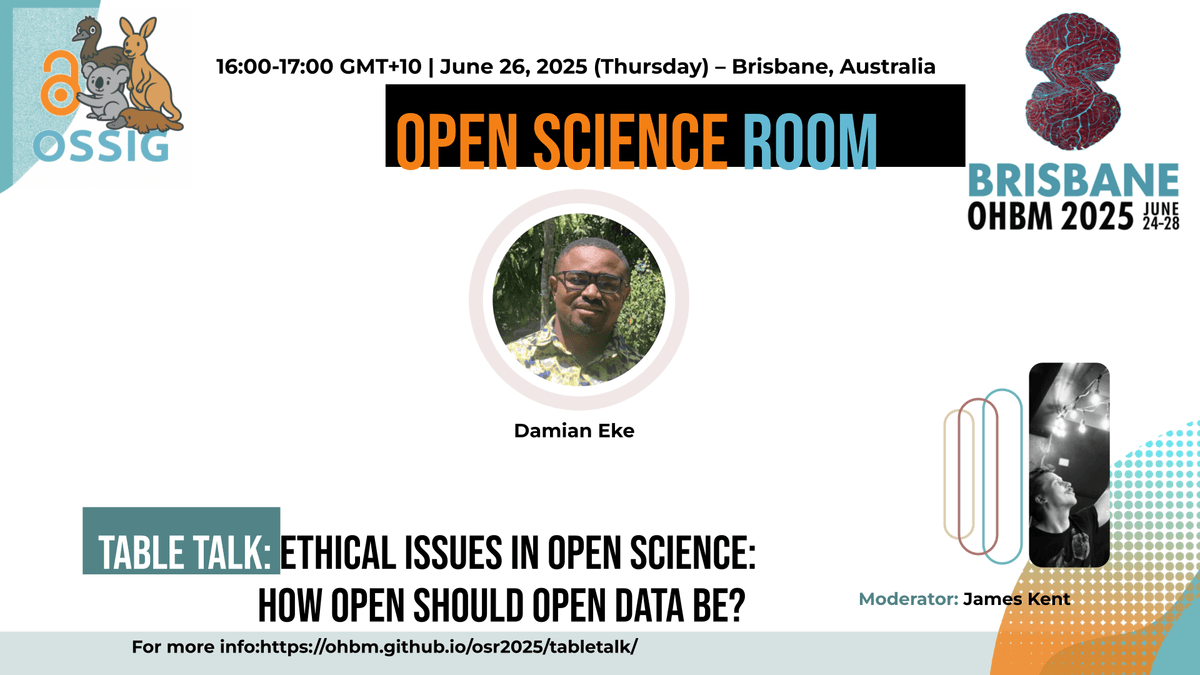
OSR 2025 | Table Talk 3: Ethical Issues in Open Science: How Open should Open Data be?
By ossig2025
hosted by
o
ossig2025
share
OSR 2025 | Table Talk 3: Ethical Issues in Open Science: How Open should Open Data be?

By ossig2025
hosted by
ossig2025
share